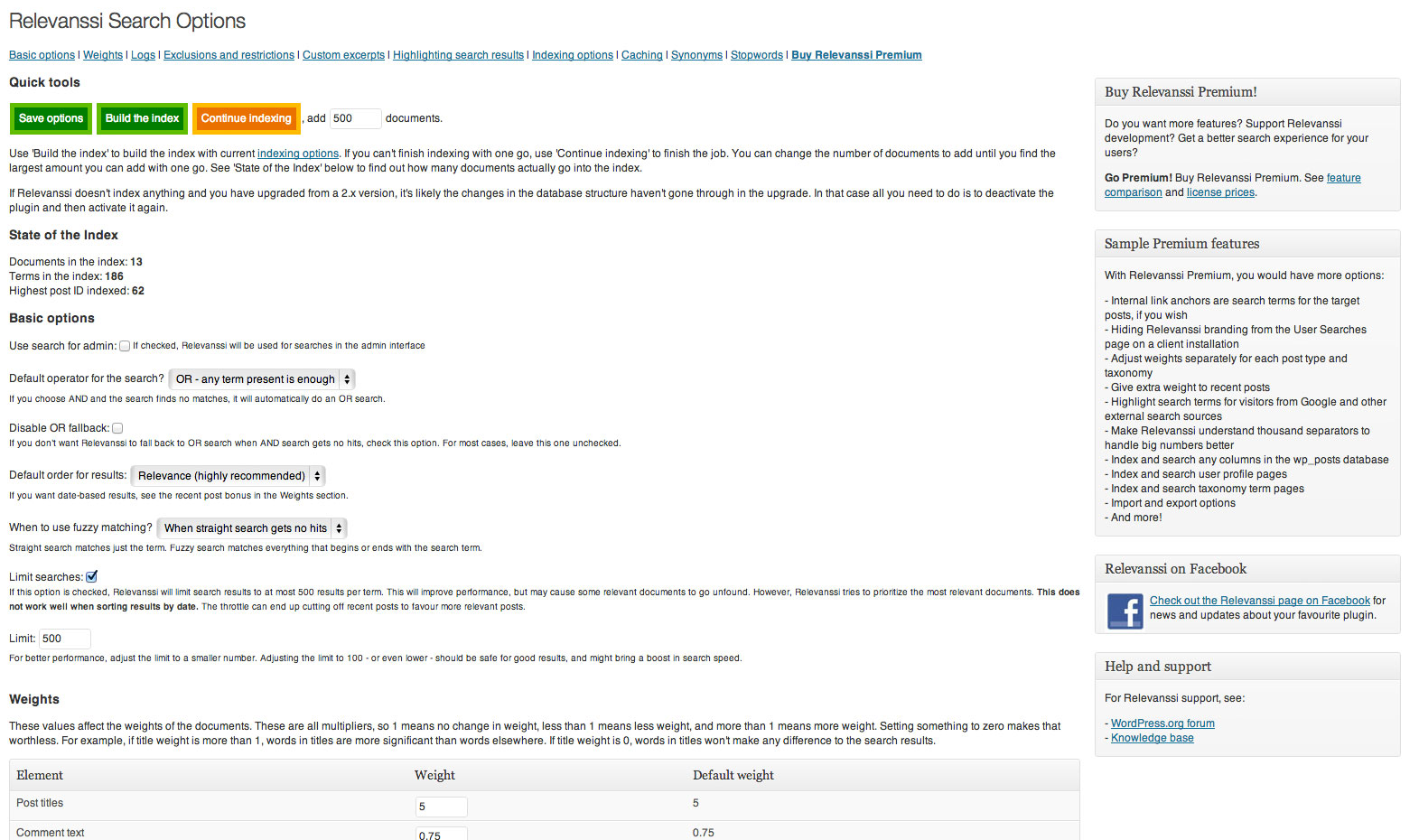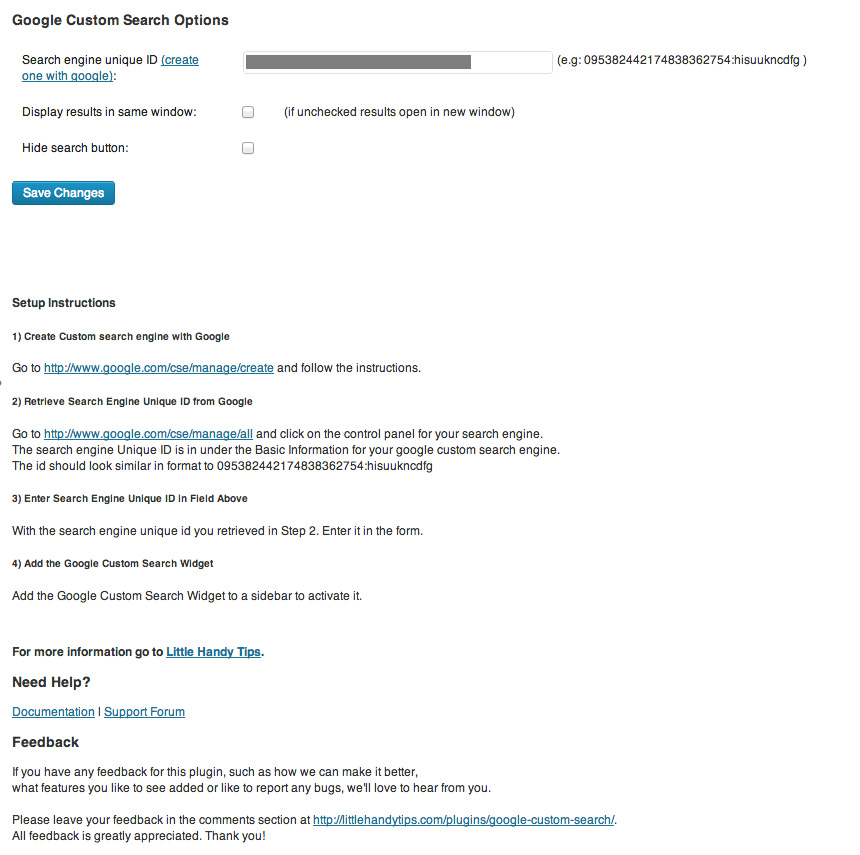Our entire lives resolve around search. Can you imagine a day without using Google or Yahoo or any other search engine of your preference? It boggles the mind! Search is integral to your blog or site, especially if you have more than just a few posts or pages. Without a good search engine backing you, your site will become a large cosmic black hole, with every post going in, but nothing of value coming out of it. Remember that blog post you wrote two years ago? Well, a visitor to your site today is looking for that precise bit of information that you had in that blog post. The question is, will they be able to find it on your site?
That brings us to the focus of this post, the search feature on WordPress.
So WordPress has search capability out-of-the-box. If you have not done so already, you can add a search widget (widgets => move ‘search’ to any of the widget boxes on the right) to your site. People will now be able to enter a search keyword(s) and get results that match that keyword. However, there are some limitations to the WordPress search.
Limitations of WordPress Search
- The default WordPress search lists search results chronologically, with the most recent post showing up right on top of the page. It does not list search results by relevance to the search keyword entered. This defeats the purpose of search in a sense, as the most relevant information to a search query could be hidden a few pages away.
- WordPress also only searches content within posts. It does not search content in comments or pages. The comments section of a thriving blog usually contains pure gold and you probably want that searchable as well.
- It is impossible to enable visitors to your site to refine their search and only search content within a specific category. Currently WordPress search, will search all blog content, irrespective of category so there is no way that visitors can narrow down their search.
- Also the WordPress search lacks some of the bells and whistles that we have come to expect in any search – keywords are not highlighted in any way on the results page. There is no way to have an advanced search or also filter the results based on type, and so on.
Some of these limitations can be overcome by using a plugin or custom code.
One of the best plugins that we have come across in recent times is Relevanssi, the Finnish word for “relevance”. This search engine offers lots of features and is highly configurable. It is easy to use. Simply install it and configure it (found under the Settings menu). It replaces the existing WordPress search. It is activated once indexing is complete.
There is a free version and a premium version of the same plugin. The free version has the following features.
- Search results sorted in the order of relevance, not by date. This is my biggest grouse with the default WordPress search and this plugin offers a perfect solution.
- Fuzzy matching: match partial words, if complete words don’t match.
- Find documents matching either just one search term (OR query) or require all words to appear (AND query).
- Search for phrases with quotes, for example “search phrase”.
- Create custom excerpts that show where the hit was made, with the search terms highlighted.
And more. This plugin is really search on steroids!
As I mentioned earlier in this post, there is also a paid version, which comes with support included and new features. The premium version supports multisite support, improved spelling correction in “Did you mean” suggestions and a host of new features. It isn’t very expensive (9 euros) and you might want to consider upgrading to the premium edition. Given that search is such an integral part of any site, it is expected that there will be issues when messing around with default WordPress behavior. Relevanssi does not work with plugins that rely on standard WP search. It is best to test this prior to going live with it on your site.
Search your site using Google
Google is synonymous with search and most of us would rather implement Google search on our sites, rather than anything else.
There are two ways to do this.
1) Create a Google Custom Search without a plugin. Navigate to the Google Custom search page. Enter details, such as the url of the site/page that you want Google to search. Google will then create a unique search ID for that search request and provide you with some code that you will need to copy and paste wherever you want the search box to appear. You will also be able to edit some of the search settings from that page. It is unlikely that this custom search will yield any search results for atleast 24 hours, while Google’s spiders get to work on indexing your site. Google also enables you to quickly monetize your search page by adding Google AdSense to the page. This can be done fairly easily.
2) Add a Google search plugin. The Google Custom Search Plugin is easy to implement. Add the plugin to your site and access the properties page from the Settings Menu. Once there, you will need to enter a unique search ID (see above for details) and then add the Google Custom Search widget to a sidebar. Wait for 24 hours while Google indexes your site and then test it.
In a world where the search engine is kingmaker, ignoring search is risky business. Get your search capability going, and watch your old blog entries get current again.
If you enjoyed this post, make sure to subscribe to WP Mayor’s RSS feed.







2 Responses
I highly encourage you to try out Swiftype. We offer some really great features like autocomplete, a learning relevance algorithm, and result customizations. Best of all, the search runs on our servers, so it won’t slow down your website in any way. You can try it for free:
Best,
Quin Hoxie
Founder, Swiftype
I’m sorry to say that after installing your first suggestion Relevanssi, my wp-admin was unreachable, so I deleted it through ftp. I would love a good working search plugin, though.